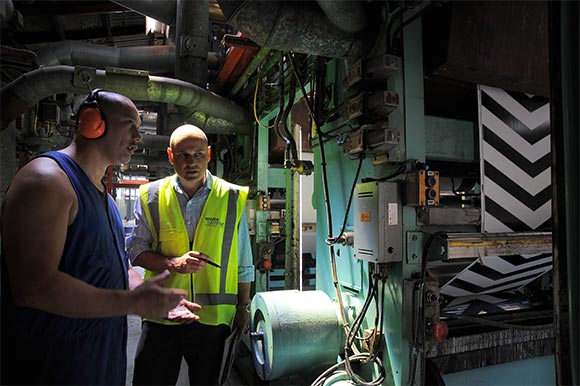
South Australian general practitioners (GPs) are making a direct appeal to local lawmakers by conducting health checks for members of the Parliament of South Australia. On March 15, 2024, five specialists from the Royal Australian College of GPs (RACGP) are offering brief health assessments to MPs while advocating for strategies to address significant workforce challenges within the state’s healthcare system.
During these health checks, which last 10 to 15 minutes, participating GPs will assess blood pressure and diabetes risk, emphasizing the necessity for all South Australians to have consistent access to a GP. Alongside these assessments, the group will present three key initiatives aimed at expanding the GP workforce in South Australia, improving access in rural areas, and enabling more patients to receive care during evenings and weekends.
Dr Sian Goodson, Chair of RACGP SA, highlighted the existing difficulties in growing the GP workforce in the region but stressed that solutions are within reach. “As someone who settled in South Australia after training in the UK, I can see there are opportunities to attract the specialist GPs we need to both metropolitan areas and our rural and remote towns,” she stated.
Significant progress is already underway, with a notable increase in the number of junior doctors entering specialist GP training. In 2025, 114 junior doctors will begin their training in South Australia, marking a 34% increase compared to 2024. This includes a 60% increase in those pursuing training in rural pathways, crucial for delivering healthcare in underserved areas.
Dr Goodson pointed out that South Australia currently welcomes fewer future GPs per capita than states like Queensland and New South Wales. She suggested that providing $40,000 grants to offset training costs could incentivize overseas-trained doctors to relocate and train in South Australia. This could significantly bolster the rural GP workforce, as these doctors often practice outside metropolitan areas.
Improving after-hours access to non-urgent general practice care is another priority for South Australian GPs. Dr Goodson noted that routine preventive care is essential for reducing long-term hospital admissions. “Too many people miss opportunities for non-urgent and preventive care because they can’t see a GP on weekdays,” she remarked.
To enhance access, the proposal includes a modest investment of $150,000 per practice each year, which would allow more GPs to offer services until 20:00 on weeknights and on Sunday mornings. This initiative aims to make non-urgent healthcare more accessible and affordable, ensuring patients can consult their usual GP.
The third initiative, the Metro to Rural Practice Program, seeks to improve access to general practice care in rural and remote communities. This program proposes funding metropolitan GPs to gain training and experience in rural medicine, establishing a regular work schedule in these areas. By becoming familiar with local practices and communities, metropolitan GPs can alleviate some of the pressures faced by rural practitioners.
Dr Goodson emphasized the health disparities faced by residents in rural areas, noting that those communities often encounter poorer health outcomes due to limited access to consistent GP care. “While locum GPs help fill urgent workforce gaps, they can’t provide the same ongoing care as a GP who knows their patients,” she explained.
With the introduction of the Metro to Rural Practice Program, metropolitan GPs would replace temporary locum work with stable, ongoing care, benefiting both practitioners and patients. This initiative not only enhances the experience for patients but also allows GPs from metropolitan areas to establish valuable relationships within rural communities.
“Telehealth also means there will be opportunities for follow-up care by a GP who knows their health and medical history,” Dr Goodson concluded, reinforcing the importance of establishing strong GP-patient relationships for long-term health benefits. The proposed initiatives represent a proactive approach to tackling workforce challenges and enhancing healthcare accessibility across South Australia.






